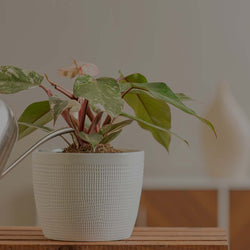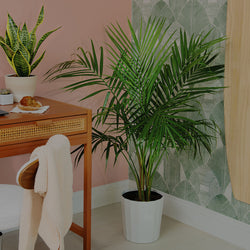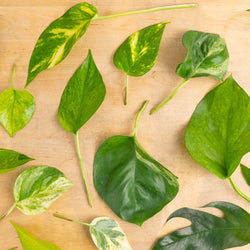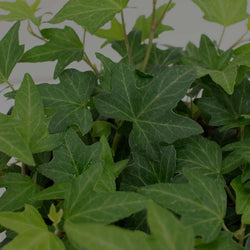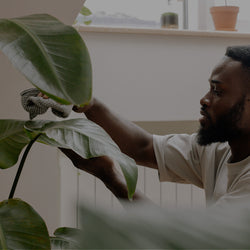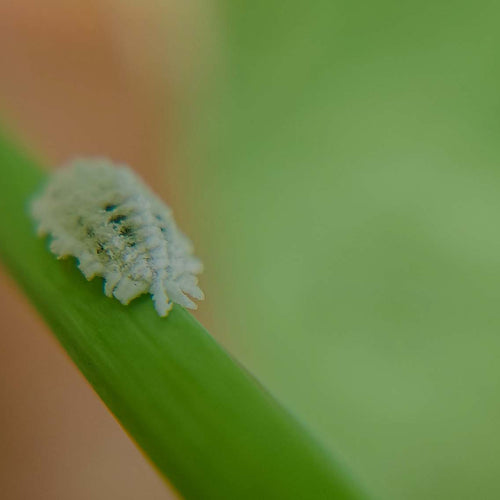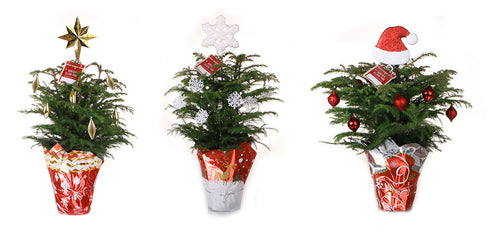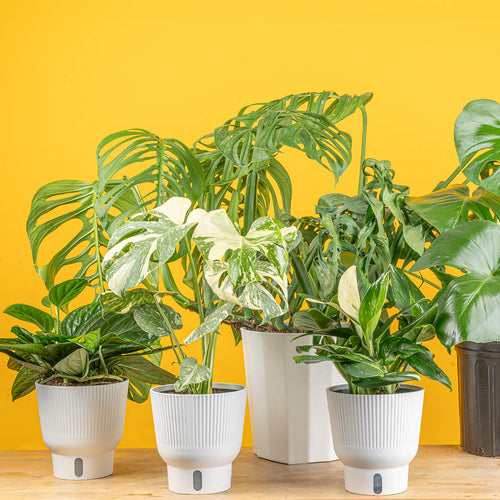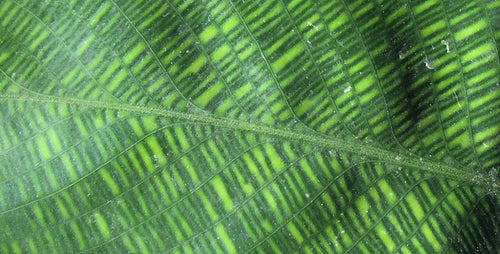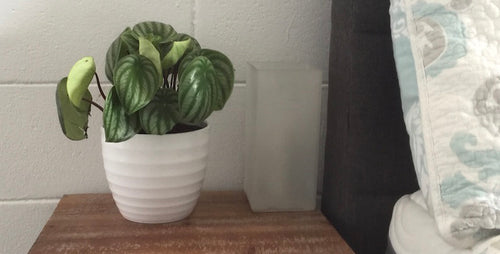
Staghorn Fern
Botanical name: Platycerium bifurcatum
The long fronds of staghorn fern stretch out from its base, looking like giant antlers. One of the most unusual varieties of fern, it doesn't need soil to grow in, so staghorn fern can be grown attached to piece of wood hanging on a wall like a piece of art. It also looks beautiful cascading out of a hanging basket.
Growing tip: Staghorn ferns like low to medium light and moderate moisture.

Silver Lace Fern
Botanical name: Pteris ensiformis 'Evergemiensis'
An adorable lacy little fern, Silver Lace fern offers silvery white variegation on green leaves. Finely divided frosty fronds makes this an elegant fern an ideal choice for bedrooms, baths, and kitchens -- anywhere you are likely to admire it from up close.
Growing tip: Elevate the humidity around Silver Lace fern by setting it on a pebble tray with water, especially during low humidity times, such as winter.

White Rabbit's Foot Fern
Botanical name: Humata tyermanii
Gray fuzzy creeping rhizomes give this cute fern its common name: White Rabbit's Foot Fern. The leaves are dark green and divided. This fern is related to Black Rabbit Foot Fern, but has lighter leaf color.
Growing tip: Water White Rabbit’s Foot fern only when the soil feels dry. If this plant gets too much water it may turn leaves yellow.

Kangaroo Fern
Botanical name: Microsorum diversifolium
Not all ferns are frilly. Case in point: Kangaroo fern. This beautiful houseplant produces long shiny, dark green, leathery fronds. Native to Australia and some parts of New Zealand, Kangaroo ferns can grow to be a foot tall but it has a decidedly horizontal growth habit; its fronds can grow 2 to 3.
Growing tip: Keep Kangaroo ferns looking healthy by removing any yellowing or dead leaves. Simply clip off at the base of the plan.
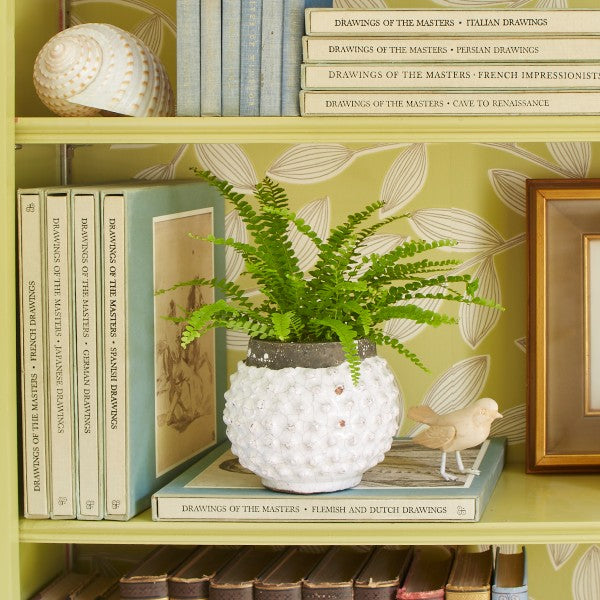
Lemon Button Fern
Botanical name: Nephrolepis cordifolia 'Lemon Button'
'Lemon Button' fern sports lemony golden-green foliage. Each leaf has delicate button-shape lobes on either side of the main leaf vein. Very beautiful. This fern does best in bright, indirect light and enjoys evenly moist soil.
Growing tip: 'Lemon Button' fern can spend the summer outdoors in a shady spot.

Mahogany Fern
Botanical name: Didymochlaena truncatula
The mahogany-hued fronds are the physical feature that gives the common name for this fern. Although reddish-brown when first emerging, the fronds mature to a rich green. Keep soil moist, but not too wet. Don’t allow the soil to totally dry out between watering; if your Mahogany fern is underwatered, the leaves may start crisping at the edges.
Growing tip: Plant Mahogany ferns in bright, indirect light. Too much light may burn their delicate fronds. Discover how to measure light with your smartphone.

Fluffy Ruffle Fern
Botanical name: Nephrolepis exaltata 'Fluffy Ruffle'
This fern is related to Boston fern but offers more finely divided fronds. ‘Fluffy Ruffle’ fern has a soft fluffy look that pairs well with other ferns. This elegant, compact fern features shiny, arching, fronds.
Growing tip: Plant ‘Fluffy Ruffle’ fern in a hanging basket or footed planter so you can enjoy the intricate fronds.

Blue Star Fern
Botanical name: Phlebodium aureum mandaianumBlue Star fern features arching bluish-green fronds with ruffled edges.The fern is vigorous and easy to grow, reaching 12 inches tall and wide at maturity. You might also see it sold as Polypodium.
Growing tip: If you are looking for a fern that isn’t a leaf dropper, try Blue Star fern.

‘Austral Gem’ Fern
Botanical name: Asplenium 'Austral Gem'‘Austral Gem’ fern sports thick, waxy fronds that are sturdy and durable. It's an easy-to-grow houseplant that appreciates low or medium light. Plants grow 12 inches tall and wide.
Growing tip: Is your home on the dry side? ‘Austral Gem’ has thick, sturdy leaves and requires less humidity than other thinner-leaf ferns.
